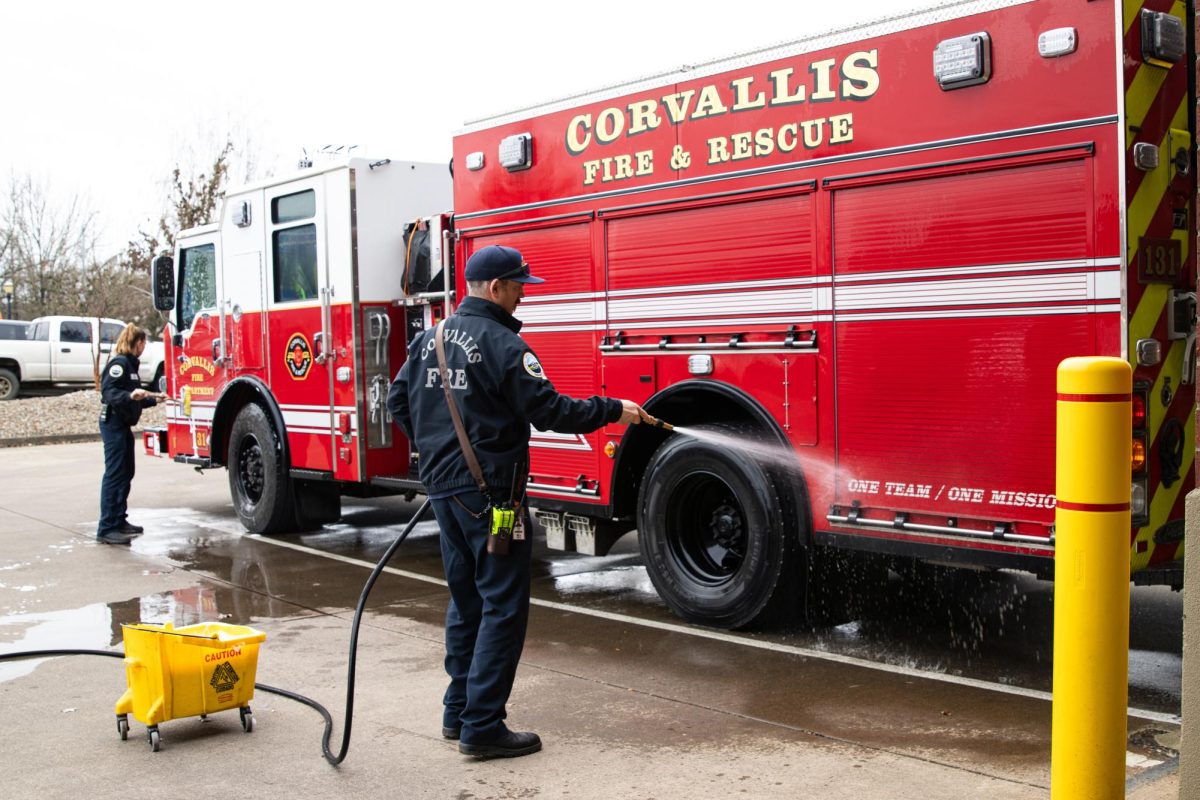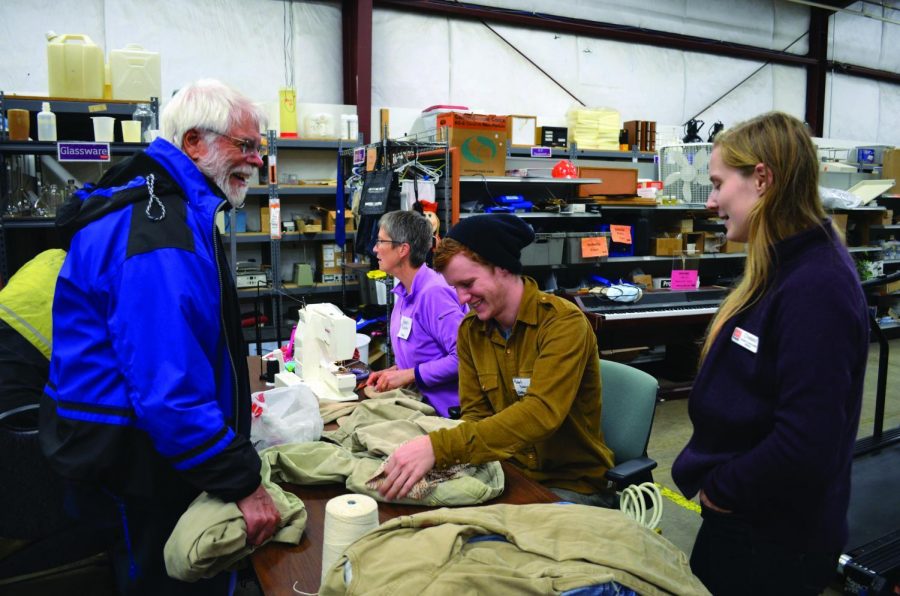Daarstad: Reduce waste to save our throw-away society
February 10, 2020
Reducing waste is a critical component in creating a more sustainable future.
Waste is a dilemma with regards to the environment and health. From impacting climate change and causing health problems, it’s an issue that needs to be tackled.
America has become a throw-away society. A throw-away society is considered a society that has become influenced by consumerism and overconsumption.
While the U.S. is home to only 4% of the world’s population, it produces more than 30% of the planet’s total waste. In 2017 alone, over 267.8 million tons of municipal solid waste and trash, was generated by the U.S., and the majority of the waste produced was sent to a landfill.
The Environmental Protection Agency found that landfills are the third-largest source of human-related methane emission. Compared to carbon dioxide, methane is about 68 times more potent than carbon dioxide, and contributes to climate change.
Landfills have been proven to release harmful gases that have been linked to serious health problems and birth defects. All landfills that have been created are expected to leak at some point which will result in an emission of toxic chemicals from the waste into soil and water. These leakages could impact drinking water and crops.
Americans need to take a second look at the amount of waste that they produce because it’s a major issue. Most people are oblivious to the issues because they can’t see it or are not affected by it. The trash is put in a container and is shipped off to a landfill never to be seen again.
It’s becoming a more prominent complication with talks about how to create a more sustainable future.
It’s time people realize that this overconsumption is causing harm to our environment, and should consider becoming better waste managers.
The three Rs is a principle concept when focusing on better waste management. The three Rs stand for, reducing, reusing and recycling. Reducing should be a person’s main goal, with reusing next, and recycling last.
Reducing waste can be accomplished in multiple ways such as using reusable water bottles, using stainless steel food containers, and buying less packaged products. Instead of buying something new, a person can reuse things, like upcycling clothing and thrift shopping. If none of these are options, recycling should be the next alternative before throwing it away.
These are just simple solutions for a single person to make an impact on reducing their waste. Oregon State University is also working on making a positive impact on reducing waste. Brandon Trelstad, sustainability officer at OSU, spoke about some initiatives through the Sustainability Office that focuses on better waste management.
The Sustainability Office is working on promoting green office and green lab certifications, which looks at multiple factors, one being waste management, to offer a score on how sustainable the office or lab is.
It also strongly supports the Waste Watcher’s Club in their reusable cups proposal. The proposal would require anyone using dining dollars or Orange Rewards to use a reusable container.
“That would eliminate most of the over 1.3 million disposable cups thrown away at the Corvallis campus each year,” Trelstad said.
Andrea Lynn Norris, marketing and development coordinator for Campus Recycling and Surplus Property, said there are multiple organizations throughout campus that work to reduce campus waste, like University Housing and Dining Services who are working to reduce food waste by tracking food waste. So far, the data suggests that this has worked to reduce waste and cost, Norris said.
The OSUsed Store’s efforts contributed greatly to the reuse of materials generated at OSU as well. It’s estimated that at least 548 tons of goods were resold in the 2018-19 academic year, Norris said.
Norris is the advisor for Waste Watchers, which has promoted events like Repair Fairs to offer free repairs, and RecycleMania which is a recycling competition between OSU and the University of Oregon.
“Club members focus on educating other students on campus on waste reduction through marketing and activities, and thus, they are a key group on campus for waste reduction education,” Norris said.
Lowering our waste consumption should be a significant goal. This doesn’t mean that people should all of sudden become zero-waste experts.
Take one step at a time, try packing your lunch in a reusable container, and avoid using that colorful straw when getting Dutch Bros. Small things make a big difference.


















































































![Newspaper clipping from February 25, 1970 in the Daily Barometer showing an article written by Bob Allen, past Barometer Editor. This article was written to spotlight both the student body’s lack of participation with student government at the time in conjunction with their class representatives response. [It’s important to note ASOSU was not structured identically to today’s standards, likely having a president on behalf of each class work together as one entity as opposed to one president representing all classes.]](https://dailybaro.orangemedianetwork.com/wp-content/uploads/2025/03/Screenshot-2025-03-12-1.00.42-PM-e1741811160853.png)
























